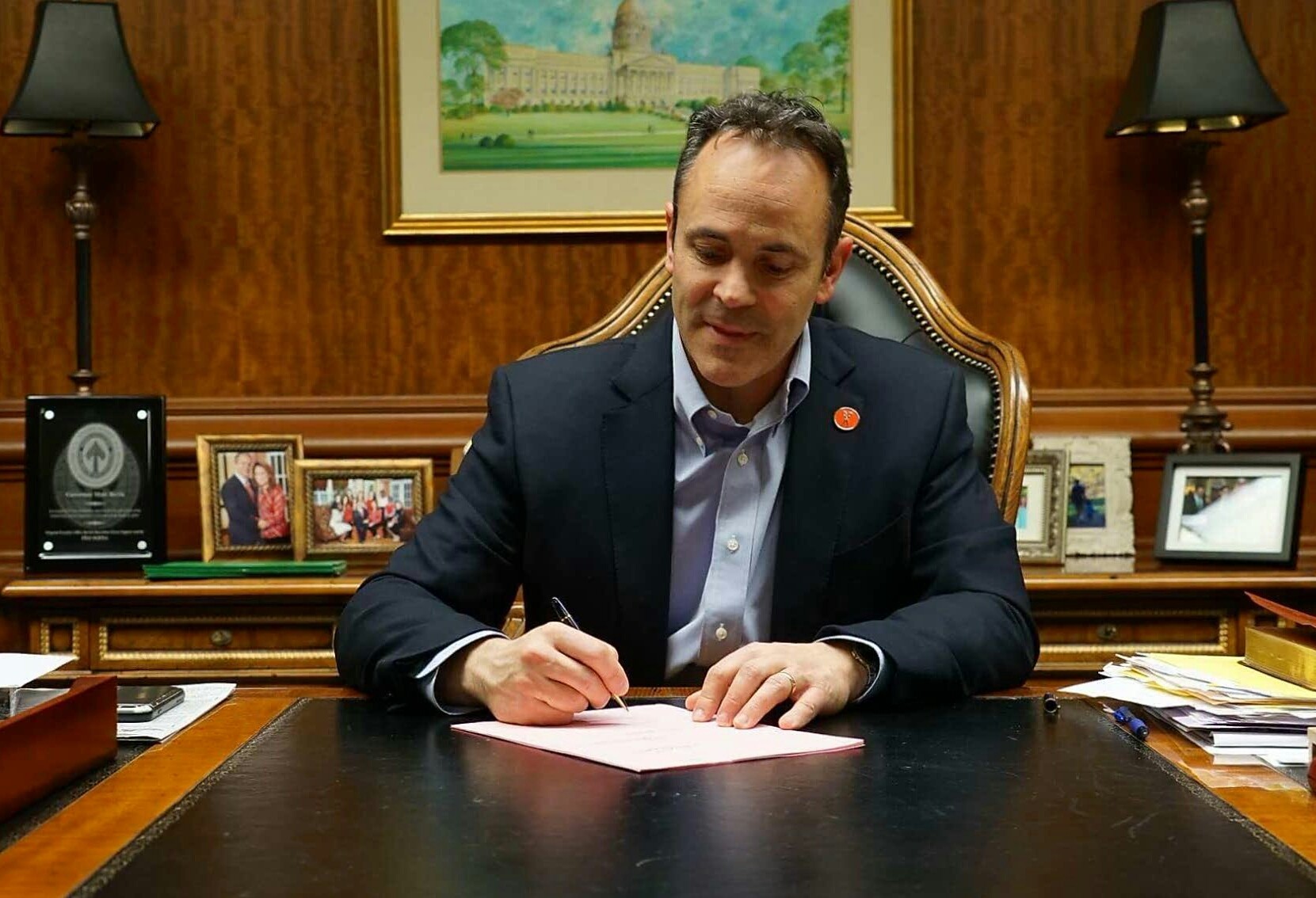By Tom Latek
Kentucky Today
Independence Day will be especially meaningful for 10 Kentuckians who have received gubernatorial pardons.
“This is the week that we as Americans set time aside to celebrate our nation’s independence and the blessings of individual liberty,” Bevin said in a statement Monday after issuing the pardons. “It is an appropriate time to use the authority vested in my office to grant a fresh start at independence and liberty for several individuals who have lost both due to their previous criminal behavior.”
Those pardoned included Deah D. Adams of Lexington who was charged with reckless homicide after she gave vinegar to her 5-year-old son Joseph, who had an intestinal disorder, to induce vomiting after he ate dairy products that made him ill.

Fayette County Circuit Judge Pamela Goodwine ultimately accepted Adams’ guilty plea to a misdemeanor abuse charge.
“Ingesting vinegar does not cause death and cannot cause death,” Goodwine said, telling Adams: “You have to forgive yourself,”
Others receiving pardons were Regina Faye Bedwell of Benton, Wilgen Allen Boyer of Somerset, Michael Dwayne Brooks of Leitchfield, John Kevin Chapman of Jackson, James Edgar Crawell of Clinton, Timothy Reed Dulworth of Campbellsville, and Robert Darin Ashley, Jerry Crenshaw and Rory Dion Crowe, all of Louisville.
“My office receives many requests for pardons,” Bevin said. “All of them are in the process of being carefully reviewed. After much deliberation, I believe that unique circumstances warrant executive action for these 10 men and women.”
The governor said he expects to issue additional pardons throughout his term in office.
Last week, Bevin restored the right to vote and hold public office to 284 more prior offenders, who have completed their sentences and applied for restoration of their civil rights, bringing the total to 308 since he took office in December 2015.
The actions go along with Bevin’s criminal justice reforms aimed at removing barriers to allow non-violent offenders to successfully re-enter society.
In 2016, Bevin signed a bill that gives non-violent felony offenders who have completed their sentences a second chance. If they stay out of trouble, those convicted of Class D felonies can have their convictions erased, giving them a better chance at jobs, housing and other opportunities that can be difficult for ex-cons.
In February, the governor signed an executive order removing questions about criminal history from the initial application for executive branch state jobs. A similar policy is used in 24 other states.

















